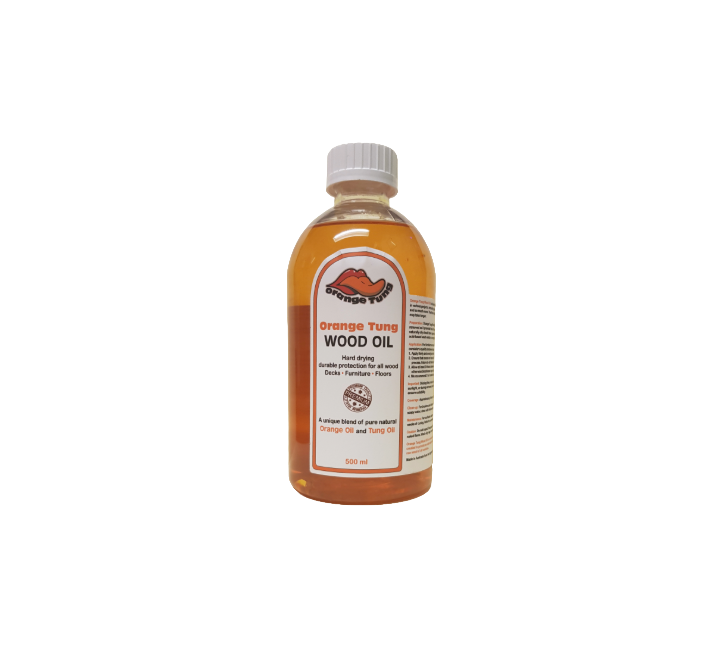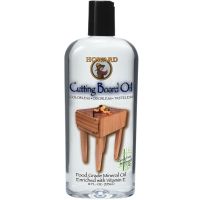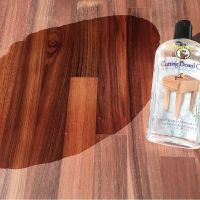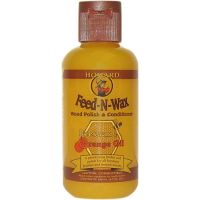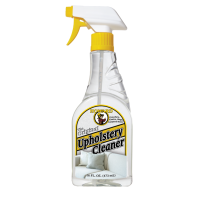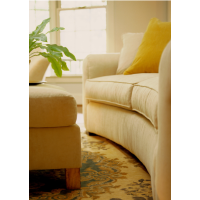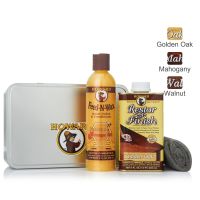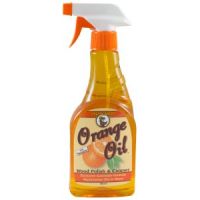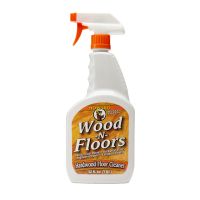Orange Tung Wood Oil
Coats and protects wooden furniture, floors and decks
Ideal for outdoor decking and furniture, indoor flooring and furniture. Many people are looking for a hard-wearing, low maintenance product to use as an alternative to toxic polyurethane coatings on raw or stripped furniture and flooring. Tung oil could well be the way to go so first of all read a little about Tung oil. Then take a good look at Orange Tung. It takes Tung oil a step further: Pure Tung oil creates a protective barrier as it is water and alkali resistant.
A pure Tung oil finish will not darken with age (on non-oily woods), resists scuffs and surface marks, penetrates well, remains elastic, and is unlikely to craze. Tung oil builds quickly, consolidates the wood surface, and creates a transparent low sheen finish. Pure Tung oil will not mildew or bleed when it is dry, unlike linseed oil. This makes it an excellent candidate for outdoor finishes and high traffic areas. Why should I use Orange Tung instead of pure Tung oil alone? The downside of using pure unadulterated Tung oil is that it can take 4-6 days to dry, and unless you know how to apply it, problems with ripples, bubbles, settling dust and insects can occur.
Features
Our 100% pure Tung oil combined with our 100% pure orange oil plus a secret natural ingredient, creates a natural wood coating that:-
- Has a naturally polymerising finish
- Cures by oxidation, not evaporation
- Gives a low sheen natural looking finish
- Forms a flexible, waterproof finish
- Resists abrasion and acids
- Does not blister or peel when properly applied
- Does not mould or darken with time
- Has a long shelf life
- Is safe for food preparation areas.
Using Orange Tung
So how do I use Orange Tung on my project?
- Before any coating is applied new timber must be well seasoned i.e. matured for up to six weeks. Make sure the wood is clean and free from oil, dirt build-up and all other coatings. Your timber may need to be washed down using a timber cleaner. The timber should then be allowed to dry for about 3 days and must be completely dry before the oiling process begins. If a smooth finish is required you must sand the floor and remove all residual dust.
For interior floors use a fine bristle applicator which features a 'flat-to-floor' mechanism ensuring that your finish is smooth and ripple free.
- Apply your first coat thinly and evenly over the entire surface: Work the mixture well into the wood. If the wood has too much natural oil in it, introduced oils such as ours will not be able to penetrate properly. If left unattended this could create a blotchy finish. If you see any oil not drying uniformly or pooling, blend it away. Please note: The likelihood is that if you have properly prepared your wood there will be NO excess oil to be concerned about.
- Throughout the process continue to keep an eye on the wood finish during the drying process. Excess oil left unattended may result in what is known as varnishing. This is a blotchy finish which will scratch and mark easily.
- After the surface is completely dry which takes approximately 24 hours (however this can vary depending on timber porosity and weather conditions) you can apply the second coat ensuring that you repeat the removal of the excess oil step.
- A third coat is recommended. Three coats is best for flooring or decking in our opinion. However some industry professionals recommend more coats than this.
- After the final coat is completely dry, allow two to three weeks minimum to ensure the surface is completely cured before applying the recommended coat of SunShield or Feed-N-Wax. The life of the finish depends greatly on how much direct sunlight or shade it receives and your level of maintenance. To increase the life of your deck or floor it is important to wax it fairly regularly, especially after periods of harsh weather conditions. We recommend Howard SunShield for outdoors and Feed-N-Wax for interiors.
This technique can be easily adapted for sealing raw wooden furniture, both indoors and in the garden, or to any other timber items to which you want to give a long-wearing layer of protection. With wooden furniture you can hand-rub the Orange/Tung mix into the grain and burnish it dry using friction. To get directions on how to make yourself an old fashioned shellackers 'rubber' to hand rub Orange Tung into your project. By the way, excess oil should never be an issue when using this method. We recommend a light coating of our SunShield product to maintain a long lasting finish in outdoors areas or Feed-N-Wax indoors. For occasional scuff repair, use a dab of Howard Feed-N-Wax applied carefully with an abrasive sponge pad or similar. Avoid cleaning with warm, soapy water. Soap residue causes milkiness in the finish and it harbours bacteria. Use a little orange oil on a sponge mop. If you really do need to clean using soap use Howard Clean-A-Finish blended with water and when dry rub some orange oil or Feed-N-Wax over the area to remove any soapy residue.
Please Note: Preparation and application is the key to a successful finish. Orange Tung Wood Oil is a unique blend of natural products requiring a degree of tender loving care and patience to achieve optimum results. The final result achieved may vary according to: timber type, preparation techniques, weather conditions and the application process used. Please ensure that all provided instructions are followed closely.
Points to remember
- Drying time will be affected by the density and porosity of the wood you are working on. Harder timbers may take longer to dry
- Drying time will be affected by natural conditions such as cold and wet weather or extreme humidity. Aim to use our mix on a warm, dry day.
- Do not panic if your Tung Oil and Orange Oil mix is taking a little longer (or even a little less) time to dry. It is a natural product, and responds naturally to the conditions that surround it during application.
- You need to remove excess oil during drying time.
For occasional scuff repair, use a dab of Howard Feed-N-Wax applied with Howard #0000 steel wool. Avoid cleaning with warm, soapy water. Use a little orange oil on a sponge mop. If you do need to clean using soap use Howard non chemical Clean-A-Finish and when dry rub some orange oil or Feed-N-Wax over the area to remove soap residue.
For long-term maintenance a coat of Feed-N-wax every few months is a good idea and will extend the life of your deck, floor or furniture for many years.
A few known problems that have been experienced and can be rectified: Indonesian timbers such as Merbau (pron; Merboo), which contain very visible streaks of dark oil and flecks of yellowy wax deposits in the grain can tend to resist introduced oils. This type of wood must have the oils and waxes removed from the upper surface for best results when applying decking oil. Timbers such as Merbau can also darken when coated with penetrating oil such as Orange Tung. To many people this isn't a problem, especially as dark flooring is currently very popular in the industry.
An orange peel effect is sometimes created either by not properly removing excess oil or because of some reaction to other oils or chemicals in the wood you are working on. We do add a special vegetable oil product to the mix which combats this problem however it can be rectified in small areas by rubbing it way with #0000 grade steel wool saturated with Howard Orange Oil.
Sometimes we hear that although the floor looks beautiful and the customer is very happy with it, there is a slight oiliness still evident that while not sticky, tends to come off on socks and so forth. This effect can occur with extremely hard wood, especially if the humidity is very high and the temperature very hot. This problem will eventually solve itself as the oil and the wood overcome the elements surrounding them and settle down. To deal with this problem immediately rub some pure Howard Orange Oil into the sticky areas and this will clean the stickiness away. To prevent this problem make sure that you wipe away any excess oil after each coat, as per our instructions. Also make sure that each coat is thoroughly dry before applying any following coat




